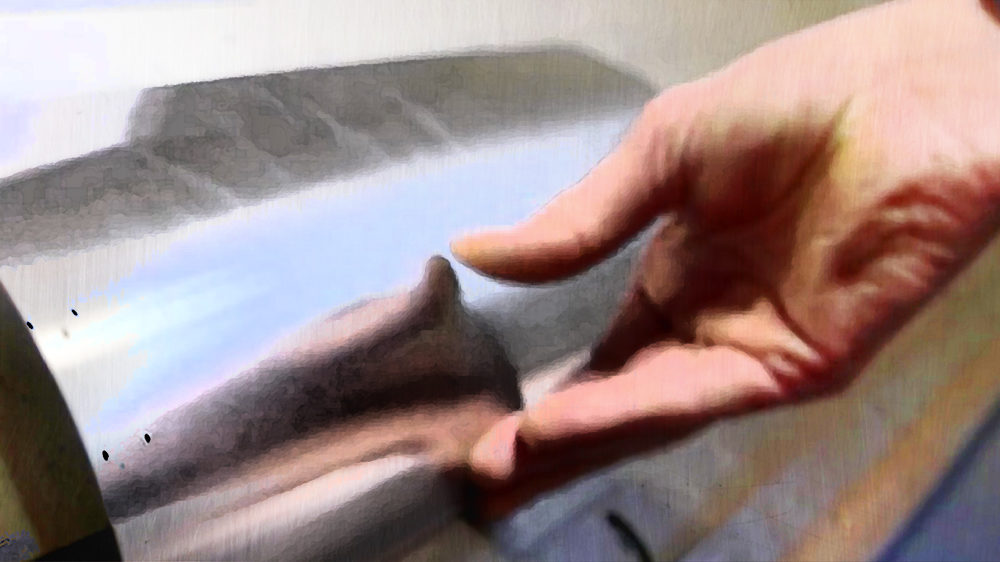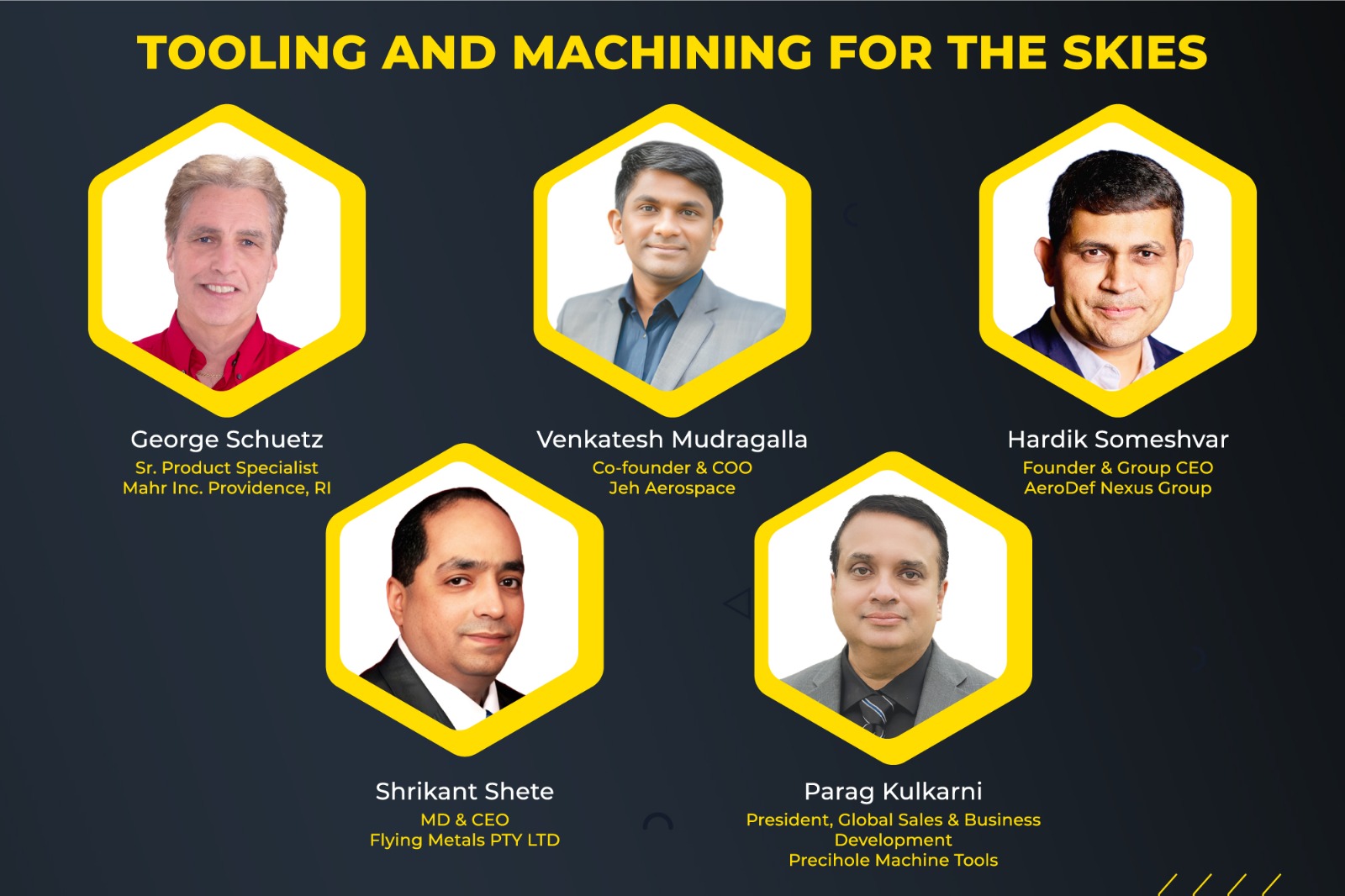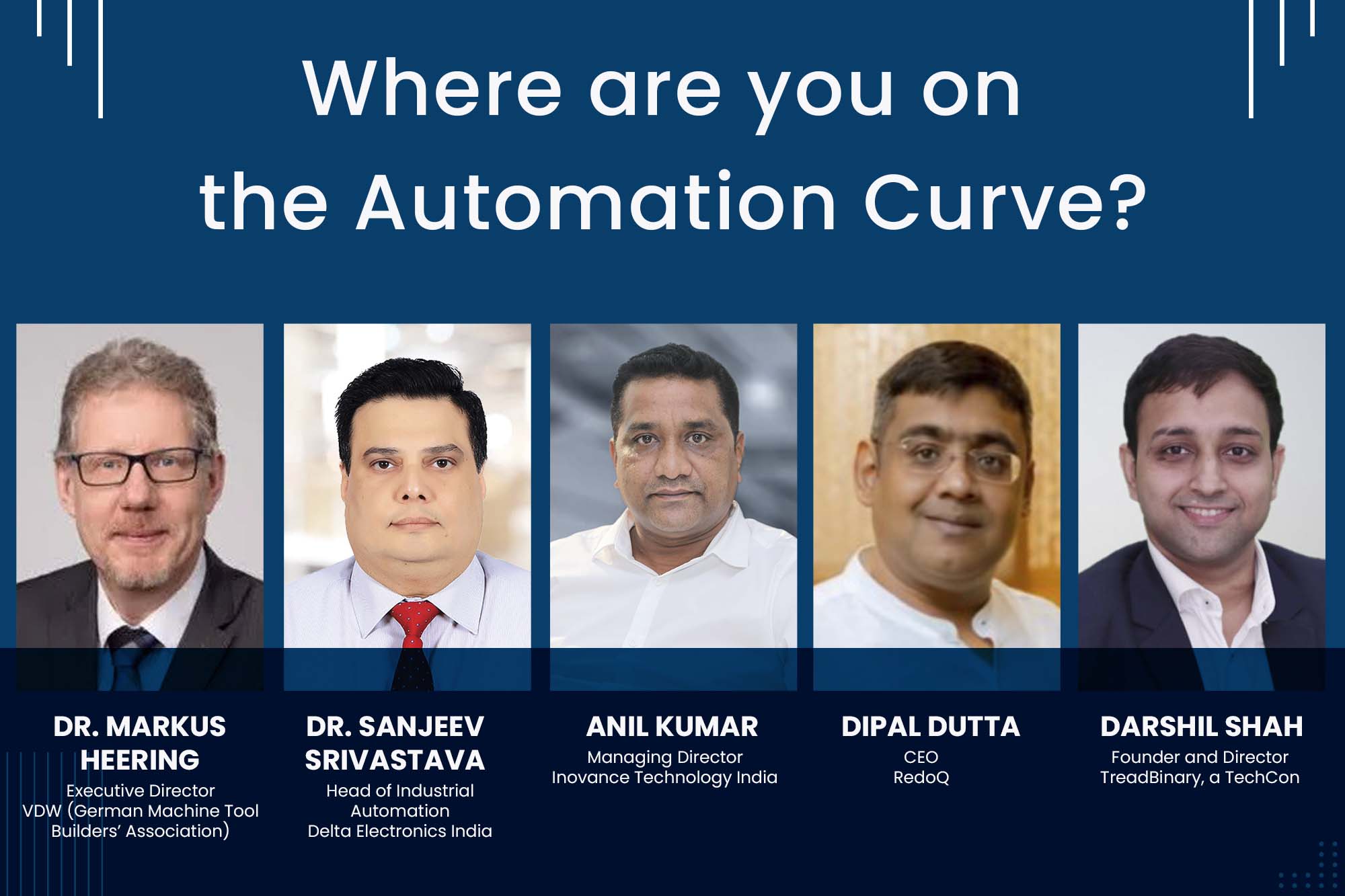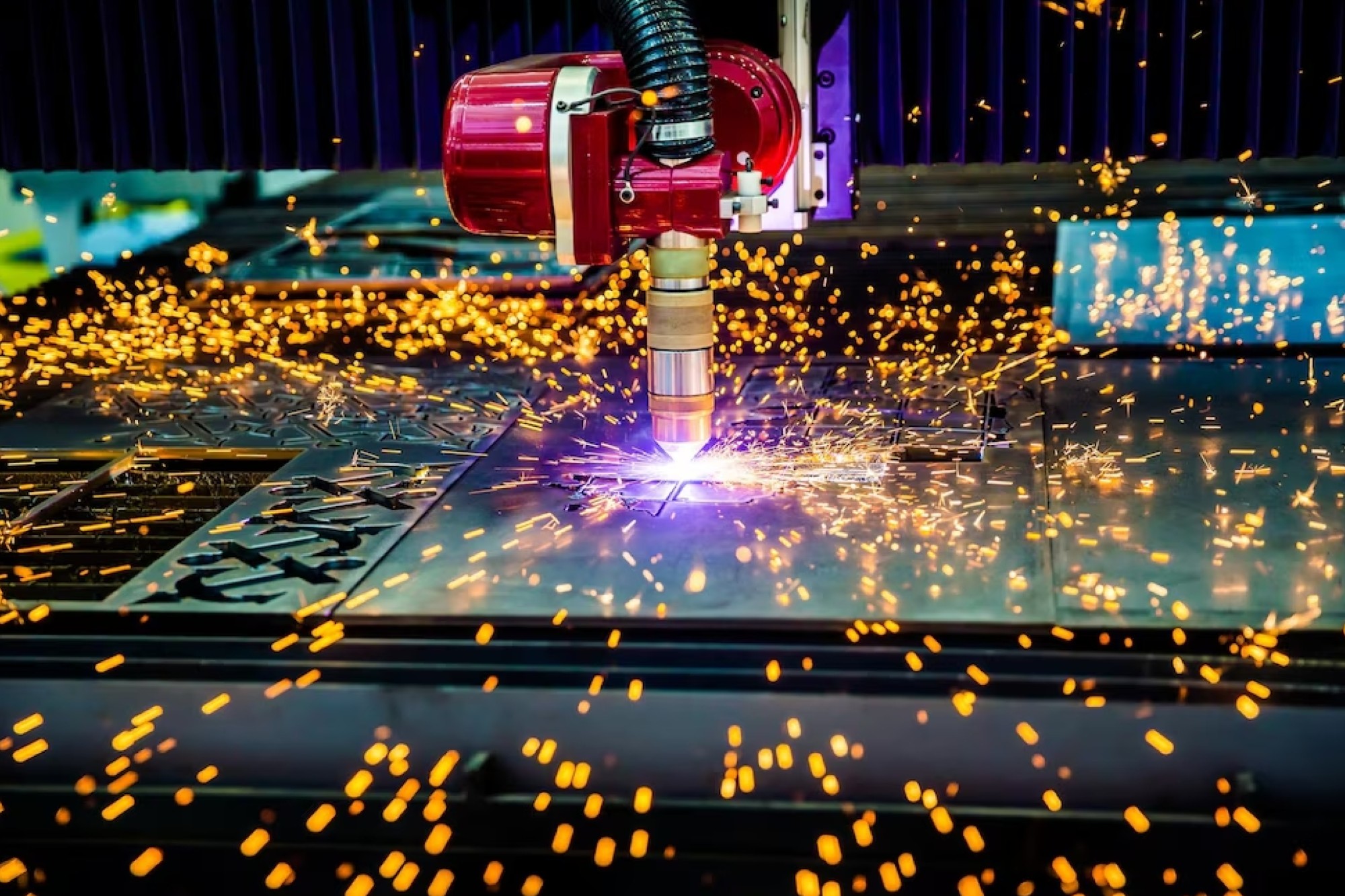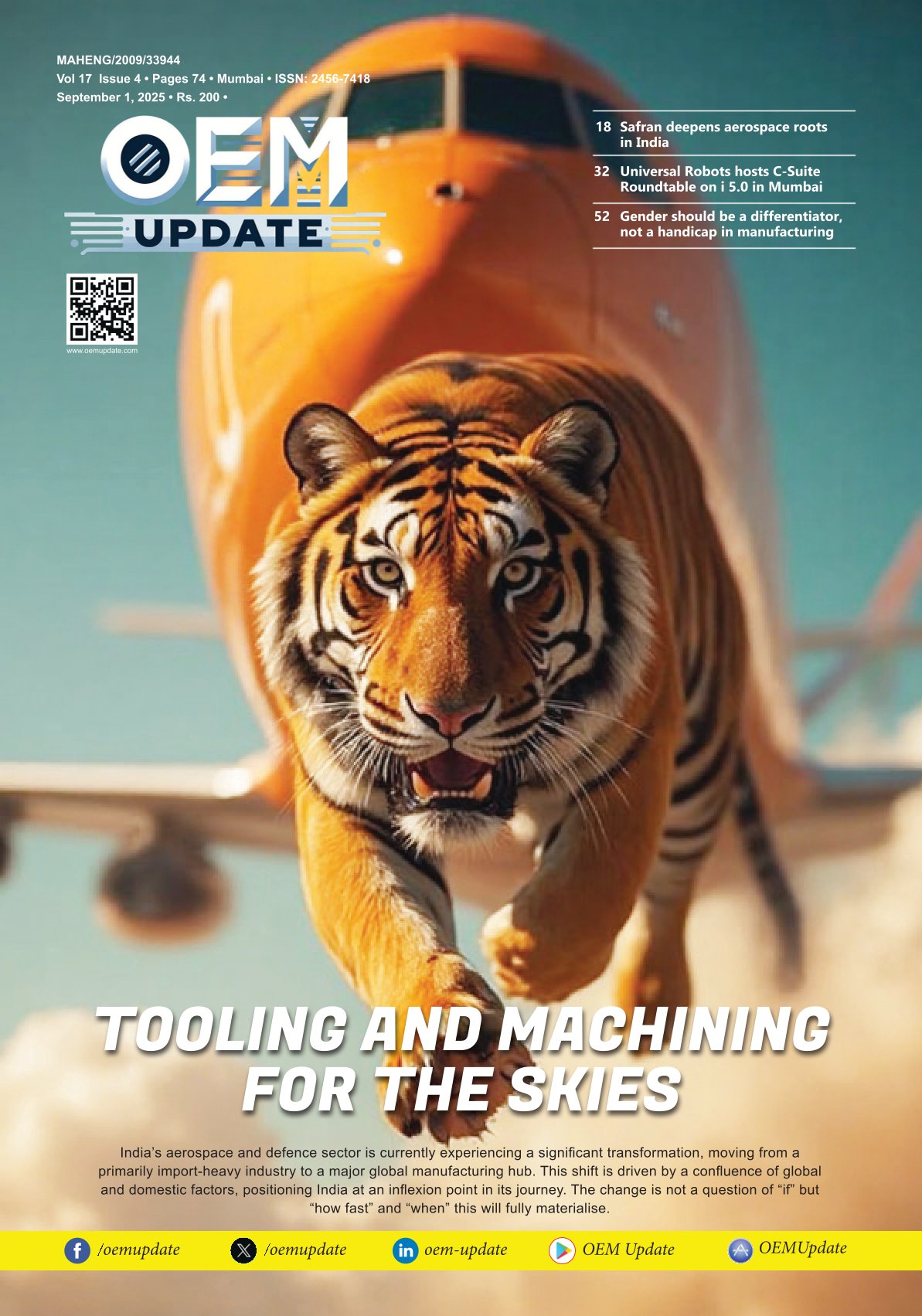Mapping the growth of metal forming
By OEM Update Editorial January 15, 2018 6:38 pm IST
An analysis on how metal forming industry is contributing to country’s growth.
Metal forming industry is huge in India. Some of researches and studies indicated the size of metal forming machinery manufacturing industry in India was around $643 million in 2010. The report in statistics estimates this industry to touch revenue of about $1063 million in 2018. Because there are many small to medium players in this industry that are widely scattered geographically, besides the well-known big names, it is difficult to estimate the exact size of this market. Here we present an in-depth analysis on how metal forming industry is contributing to country’s growth:
Largely caters to the automotive segment in India
Dr. Laxminarayan.K, Regional Manager Technical, DesignTech Systems Ltd, says, “Metal forming sector is largely unorganised and caters to various industries, however, predominantly and largely they work with industries such as automotive, industrial machinery, railways and defense.”
He adds, “As per the KPMG’s report for IBEF in 2005-2006, out of the entire machine tools industry, the estimated share of metal cutting CNC was about 66 per cent, metal cutting conventional was about 21 per cent metal forming conventional was 9 per cent and metal forming CNC was about 4 per cent. Automotive industry in India is quite big with many of the big global brands having established engineering and manufacturing operations here. They have built multi-layered and wide spread suppliers network and metal forming industry largely caters to the automotive segment in India besides others.”
Global metal forming machine tools market 2016-2020
Sameer Kelkar, CEO and R&D Head, Grind Master Machines Pvt Ltd, says, “As per the research published on ‘Global Metal Forming Machine Tools Market 2016-2020’, the global metal forming machine tools market will grow with a CAGR of 4 per cent during the 2016-2020 period and India is definitely in-line with these projections rather we should surpass the estimates. Associations and organisations worldwide are undertaking initiatives to enhance the quality and standard of metal forming machine tools.”
Kelkar feels that metal forming technologies are one of the core manufacturing technologies that influence the growth of the automotive and aerospace industry.
Kelkar informs, “Grind Master is sole Indian company to offer various technologies involving sheet metal deburring and surface finishing and flow forming technologies. We are the frontrunners when it comes to robotic automation technologies for various grinding, surface finishing technologies as well as fettling applications for forging components. Flow forming technology is not used to full extent by Indian metal forming industry however it would gain more importance as aerospace and defence sectors grow over the period of time.”
Automotive: The biggest gainer of metal forming industry
Beng Chieh Quah, Head of Marketing-Asia Pacific, FARO, says, “The metal forming industry is growing in India by each passing year, since government’s initiative to make India as the second largest automotive hub for the world. As automotive is the biggest gainer of metal forming industry and beneficiary too, its market size can be seen from entire growth of industrial sector.“
FARO has always believed in innovation. Customer’s feedback to FARO is very crucial, as they constantly keep tab on what’s trending in the manufacturing set – ups region specific. The market share in India is also going up at a rapid rate as local players also supplying their fixtures, components and parts to global established firms. In such scenarios time becomes crucial and that is where FARO is supporting market and gaining confidence from market.
Strengthening automobile and engineering sector
Maulik Patel, Executive Director, Sahajanand Laser Technology Ltd, says, “Metal forming industry in India is at earlier phase as compared to developed nations. In India, the automobile sector is largest consumer of metal forming industry, in which the automobile sector itself merely 20 years old. However, the metal forming sector is gradually strengthening the automobile and engineering sector.”
As per the recent stats, there is scope of growth in terms of investment and R&D to fulfil the need of majority of industrial verticals, where manufacturing of small and micro components plays a very crucial role.
‘Make in India’ campaign
Patel informs, “The ‘Make in India’ campaign is making a big difference for small to medium size industries which involves substantial number of segments and sub segments of the metal forming industry. The year 2018 seems significantly optimistic for the metal industry.”
India to be major contributor in coming years
Pradeep Patil, Managing Director, TRUMPF India (P) Ltd, says, “India sheet metal forming industry is still evolving with low single digit share in the global market place. But, today, with positive policies being put in place we think India to be major contributor in coming years to provide impetus to the growth of this segment of machinery.”
Market research indicates that the India has a market growing at low double digit growth, largely dominated by imported machinery but including Indian manufacturers large and small.
Key potential growth areas for metal forming industry in India:
Space, defence, automotive and allied industries might reduce
One of the major challenges for the metal forming industry is that, in order to make vehicles fuel efficient the companies are researching on ways to reduce metal usage in favour of alternate lighter weight materials such as plastics, composites and others, believes, Dr. Laxminarayan from DesignTech. He adds, “The applications for metals in industries such as space, defence, automotive and allied industries might reduce. Especially in aerospace, the usage of metal has reduced drastically and majority of the components are now developed in composites and plastics. While no one can replace metal altogether, however, the use and applications could certainly reduce.”
In such scenarios, the metal forming industry could focus on other industries that have huge growth potential in India, such as civil engineering and construction, heavy engineering, and process industry. With the government focusing majorly on infrastructure development, Dr. Laxminarayan feels that these sectors are going to experience huge surge in the upcoming years. He adds “So the companies in metal forming need to diversify their operations to cater to varied and multiple cross vertical industries rather than relying singularly on automotive, aerospace, defense and space.”
Also with government promoting ‘Make-in-India‘ campaign heavily, making policy decisions to facilitate ease of doing business to attract overseas companies to set-up their operations in India and encourage indigenous entrepreneurship, and also expecting India’s economy to grow beyond 6 per cent towards which manufacturing sector is a major contributor, metal forming industry would receive encouraging thrust to grow exponentially in the years to come.
Spotlight: Automotive and aerospace industries
Kelkar from Grind Master feels, Automotive and aerospace industries are major sectors, where light-weighting, efficiency and enhanced functionality are demanded by end users. Kelkar adds, “The major thrust in aerospace is on precision fabrication. Aerospace industry is in nascent stage in India, however if metal forming industry thrust on adding specific technologies to their basket like waterjet cutting, metal flow-forming, precision deburring and surface finishing, aerospace industry would be frontrunner to increase market size of metal forming industry.”
The automotive industry is the key end-user of the metal forming machine tools market and holds more than 40 per cent of the overall market share. Kelkar believes that Light-weighting along with increased strength is the key result area for metal forming industry to be delivered to both automotive as well as aerospace sectors. He informs, “In addition to many other engineering sectors, architectural fabrication is major area where Indian metal forming sector should focus on. As current government is putting more emphasis on creating better infrastructure, there will be many new opportunities coming in the market in this space.”
Automotive: The biggest earner
According to Quah from FARO, Automotive will always be the biggest earner, following machine tools and heavy machinery components making its way too. He informs, “Now with ‘Make in India’ campaign, enthusiasm of the industry must be high. That means new expectations to see how this transition will help Indian manufacturers who are eager to accept latest technology to excel.”
Infrastructure, transport system, energy and telecom
Niraj Seth, President, Amada (India) Pvt Ltd says, “India is an emerging market; the demand for sheet metal is growing rapidly. In coming years, this industry will have huge potential in areas like infrastructure, rapid transport system, energy, telecom, vending machines etc.”
Amada have been supplying to various business segments like switch gear, silent diesel gensets, refrigeration, machine tool, construction machines, food processing machinery, railways, aerospace, modular furniture and several other industries. Amada have been a key supplier to most of the leading companies in these business sectors.
Since infrastructure expenditure is the highest, maximum volume generation is by switchgear, silent diesel gensets, construction machines, railways and modular furniture sector.Driven largely by automobile sector
Vivek Nanivadekar, Executive Director, FIBRO India Precision Products Pvt Ltd, says, “The growth of the metal forming industry is driven largely by automobile sector followed by electronics, packaging, white goods, power, etc. The growth in the export of engineering goods from these sectors will drive the growth of metal forming industry. Aerospace industry also will drive the growth of metal forming industry indirectly. But it is too early to speculate the impact.”
He adds, “We need to identify the areas for import substitute in engineering especially in metal forming sector which would also contribute to the growth in metal forming industry.”
3D printing and additive manufacturing
By the end of 2017 infrastructure sector is about to get an investment up to USD 1 trillion in which 45 per cent of investment will be channelised into construction sector. Government is intensively planning huge projects to enhance the infrastructure in tier 2 cities and this development just cannot be undertaken without involvement of metal forming industries. Along with that heavy machinery as well as equipment manufacturing industries has initiated the reformation with collaborative efforts of private sectors and governments. Speaking of electronics, ‘Power to all’ initiative of government is looking forward to provide power to all over India by the year 2019. Patel from Sahajanand Laser says, “The current emphasise of the numerous industries is shifting towards capacity enhancements, as government is incentivising capacity building. The government has announced to support the direct exports to the neighbour countries. So this gist of ‘Make in India’ indicates opportunities in abundance.”
Though the industry is growing, there is clear instability in the demands and on observing closely, one can find out that there are only a few growth drivers and majority of the sub-segments are under performer. The fall back in making capabilities enhancement has been hindering the productivity and largely, the performance. Now that one have identified the opportunities, it becomes necessary to understand the challenges the metal forming sector is facing. The fall back in making capabilities enhancement has been hindering the productivity and largely, the performance. The acceptance of cutting-edge tools which potentially push the productivity to the next level is significantly low. For instance, the laser technology is one such machine that possess the features to enhance the metal forming process substantially, in terms of quantity as well as with up to the mark quality. Though the laser machine promises definite improvement, the problem with the technology is lack of knowledge and manufacturers’ perception regarding Indian technology. Patel comments, “The awareness about the laser technology is yet to find its way to all those concerned entities. Thus, the production cost of the laser machines is very high at the moment consequently the pricing also goes higher and that is a crucial point to make many of prospect turn down the buying decision. To tackle those issues, all the laser technology requires is appropriate awareness amongst target audience. Than after systematic education regarding its usability and its advantage must be employed.”
In metal forming sector, the trend shifts towards 3D printing and additive manufacturing, Internet of Things and smart manufacturing. Patel feels that these trends can be executed exquisitely with laser cutting and welding solutions.
IMTEX forming holds the remarkable importance in the metal forming sector and each year it turns out to be one of the biggest gathering of the people connected with technological sectors. That reflects the phenomenal potentiality for any company deals with metal forming tools and systems. So, at this time of year many of them schedule to introduce their latest offerings and if that is not the case, at least they prepare to portray their best offerings to utilise this opportunity optimally.
“Make in India” and “Smart City” initiatives
Patil from TRUMPF India says, “With low single digit share in the world market, we have the potential to grow in every industry segment in India as far as sheet metal forming is concerned.”
“Make in India” and “Smart City” initiatives that are driving investments in infrastructure are all positives which are supportive of the growth for metal forming industry. Needless to say the incremental disposable incomes and growing younger population are going to be the foundation of same.
Metal forming industry largely caters to the automotive segment in India besides others.
Dr. Laxminarayan.K, Regional Manager Technical, DesignTech Systems Ltd
Metal forming technologies are one of the core manufacturing technologies that influence the growth of the automotive and aerospace industry.
Sameer Kelkar, CEO and R&D Head, Grind Master Machines Pvt Ltd
Automotive is the biggest gainer of metal forming industry and beneficiary too, its market size can be seen from entire growth of industrial sector.
Beng Chieh Quah, Head of Marketing-Asia Pacific, FARO
“Make in India” and “Smart City” initiatives that are driving investments in infrastructure are all positives which are supportive of the growth for metal forming industry.
Pradeep Patil, Managing Director, TRUMPF India (P) Ltd
The ‘Make in India’ campaign is making a big difference for small to medium size industries which involves substantial number of segments and sub segments of the metal forming industry.
Maulik Patel, Executive Director, Sahajanand Laser Technology Ltd
In coming years, this industry will have huge potential in areas like infrastructure, rapid transport system, energy, telecom, vending machines etc.
Niraj Seth, President, Amada (India) Pvt Ltd
The growth of the metal forming industry is driven largely by automobile sector followed by electronics, packaging, white goods, power, etc.
Vivek Nanivadekar, Executive Director, FIBRO India Precision Products Pvt Ltd
Cookie Consent
We use cookies to personalize your experience. By continuing to visit this website you agree to our Terms & Conditions, Privacy Policy and Cookie Policy.



